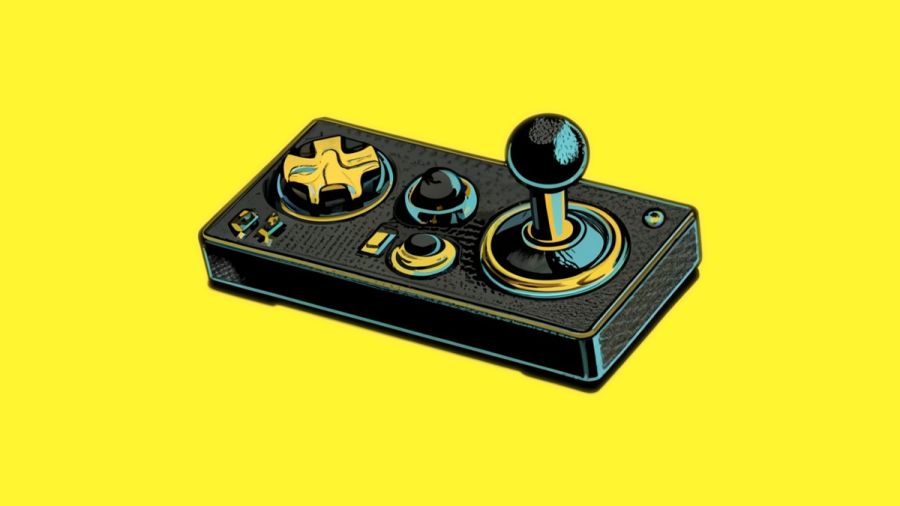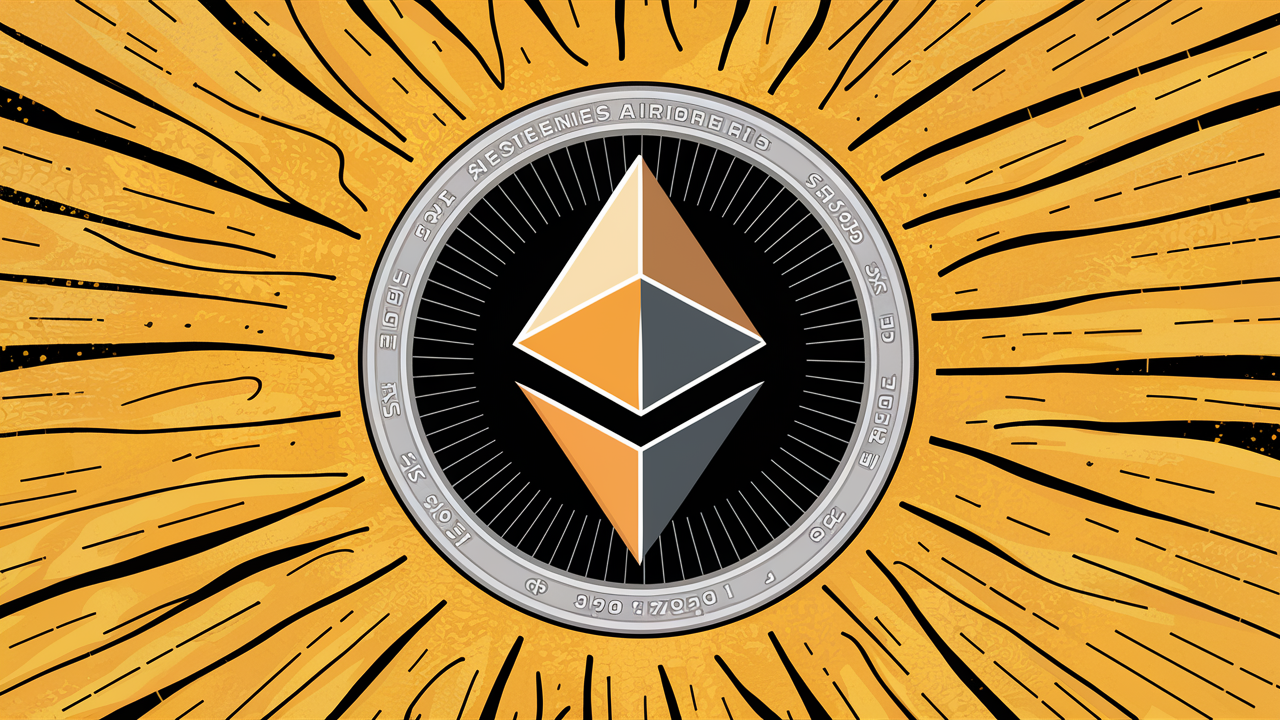GameFi: The Future of Gaming and Decentralized Finance
CryptoPress
The future of gaming and decentralized finance seems to have found its new utopia: GameFi. This concept brings together the exciting world of gaming and the unlimited potential of decentralized finance, creating an exciting new landscape for gamers and investors alike.
GameFi offers gamers the opportunity not only to enjoy their favorite games but also to earn real-world income by leveraging blockchain technology. By integrating decentralized financial protocols, players can trade game assets, earn tokens, and even engage in performance farming, lending, and betting options. This opens up a whole new level of engagement and potential financial gain within the gaming industry.
Along with the growing popularity of NFTs (non-fungible tokens), GameFi also introduces a new dimension to games and collectible ownership. Now players can actually own their in-game assets by buying, selling, and trading them on decentralized marketplaces. This provides a level of transparency and security never before seen in the industry.
Whether you are a gamer looking to monetize your skills or an investor looking for new opportunities, GameFi currently appears to be the gateway to a revolutionary future.
What is GameFi?
GameFi, short for Game Finance, refers to the integration of gaming and decentralized finance. It is a concept that combines the immersive experience of gaming with the potential financial benefits of decentralized finance. In GameFi, players can earn real-world income by participating in various activities within the gaming ecosystem, such as trading game assets, staking tokens, or even betting on game outcomes.
The underlying technology that powers GameFi is blockchain, specifically smart contracts. These smart contracts enable the creation and execution of decentralized financial protocols, providing a secure and transparent environment for gamers and investors. Through blockchain, GameFi introduces new possibilities for ownership, monetization, and engagement within the gaming industry.
Blockchain technology has been steadily making its way into various industries, and gaming is no exception. With its decentralized and transparent nature, blockchain has the potential to revolutionize the gaming industry by solving long-standing issues such as asset ownership, fraud, and lack of transparency.
One of the key advantages of blockchain in gaming is the ability to tokenize in-game assets. By representing game assets as non-fungible tokens (NFTs), players can truly own their virtual items and have the freedom to transfer, trade, or sell them on decentralized marketplaces. This introduces a new level of ownership and value to virtual assets, as players can now monetize their in-game achievements and investments.
Furthermore, blockchain technology enables the creation of provably fair gameplay. Through the use of smart contracts, game outcomes can be verified and ensured to be free from manipulation. This enhances trust between players and game developers, creating a more equitable gaming experience.
GameFi vs. traditional gaming
While traditional gaming has provided countless hours of entertainment, it has always lacked a significant financial component. GameFi bridges this gap by introducing financial incentives and opportunities within the gaming ecosystem. Players can now earn real-world income through various GameFi activities, such as trading game assets, participating in liquidity pools, or even betting on game outcomes.
In traditional gaming, players often spend a significant amount of time and money on acquiring in-game assets, only to find them locked within the game’s ecosystem. With GameFi, players can unlock the value of their virtual assets by trading them on decentralized marketplaces. This opens up a whole new world of possibilities, as players can now earn a return on their investments and have full control over their virtual property.
Moreover, GameFi introduces a level of transparency and security that traditional gaming has always lacked. Through the use of blockchain technology, players can verify the authenticity and ownership of in-game assets, eliminating the risk of fraud or theft. This creates a more trust-based environment, benefiting both players and developers.
Key features and benefits
GameFi offers several key features and benefits that set it apart from traditional gaming:
1. Ownership and monetization: Through the use of NFTs, players can truly own their in-game assets and have the freedom to monetize them by trading or selling on decentralized marketplaces.
2. Financial incentives: GameFi provides players with the opportunity to earn real-world income through various activities within the gaming ecosystem, such as staking tokens, participating in liquidity pools, or even betting on game outcomes.
3. Transparency and security: Blockchain technology ensures a transparent and secure environment for players and investors, eliminating the risk of fraud or manipulation.
4. New gameplay mechanics: GameFi introduces new gameplay mechanics, such as performance farming and lending, that allow players to earn rewards by actively participating in the ecosystem.
5. Community-driven development: GameFi projects are often developed in collaboration with the gaming community, ensuring that the needs and desires of players are taken into account.
Impact of GameFi
The GameFi market has shown significant growth and is projected to continue this trend. Here are some key points:
- The global GameFi market size was USD 9 billion in 2021.
- It is expected to reach USD 90.51 billion in 2031, exhibiting a CAGR of 27.13% during the forecast period.
- Another report suggests that the GameFi market is expected to see a growth rate of 26.60% and may reach a market size of USD 36.97 Billion by 2029.
- The number of active GameFi players is projected to reach over 50 million by 2024, up from around 20 million in 2023.
Successful GameFi projects
Several successful GameFi projects have already emerged, showcasing the potential of this new concept:
1. Axie Infinity: Axie Infinity is a blockchain-based game that allows players to collect, breed, and battle fantasy creatures called Axies. Players can earn income by trading Axies or participating in battles, making it one of the most popular GameFi projects to date.
2. Decentraland: Decentraland is a virtual reality platform built on the Ethereum blockchain. It allows users to buy, sell, and trade virtual land and other in-game assets. Users can also create and monetize their own virtual experiences within the platform.
3. MyCryptoHeroes: MyCryptoHeroes is a blockchain-based game where players can collect and battle historical heroes. Players can earn income by trading heroes or participating in battles, creating a vibrant marketplace for virtual assets.
These examples demonstrate the diverse opportunities that GameFi offers to both gamers and investors, showcasing the potential for financial gain and engagement within the gaming industry.
GameFi platforms and marketplaces
To facilitate the GameFi ecosystem, various platforms and marketplaces have emerged to provide players with the necessary infrastructure and tools:
1. Decentralized exchanges (DEXs): DEXs allow players to trade their in-game assets or tokens directly with other players, without the need for intermediaries. Some popular DEXs include Uniswap, Sushiswap, and PancakeSwap.
2. NFT marketplaces: NFT marketplaces enable players to buy, sell, and trade their NFTs. These marketplaces often provide additional features such as auctions, bidding, and royalties for creators. Examples of NFT marketplaces include OpenSea, Rarible, and NBA Top Shot.
3. GameFi platforms: GameFi platforms act as a hub for various GameFi projects, offering players a centralized platform to discover, interact with, and earn income from different games. These platforms often provide features such as token staking, liquidity pools, and yield farming. Examples of GameFi platforms include Yield Guild Games, Gala Games, and My DeFi Pet.
These platforms and marketplaces form the backbone of the GameFi ecosystem, providing players with the necessary tools and infrastructure to engage in GameFi activities.
GameFi tokens and their role in the ecosystem
GameFi tokens play a crucial role in the GameFi ecosystem, serving as a means of value exchange and governance within various projects. These tokens can have different functions, such as:
1. Utility tokens: Utility tokens are used within specific GameFi platforms or games to access certain features, pay for services, or earn rewards. These tokens often have a limited supply and can be earned through gameplay or purchased on exchanges.
2. Governance tokens: Governance tokens enable token holders to participate in the decision-making process of a GameFi project. Holders can vote on proposals, shape the future development of the project, and earn rewards for their participation.
3. Liquidity provider tokens: Liquidity provider tokens are issued to users who provide liquidity to decentralized exchanges or liquidity pools. These tokens represent the user’s contribution to the liquidity pool and can be used to earn additional rewards.
GameFi tokens create an interconnected ecosystem where players, developers, and investors can participate and benefit from the growth of the GameFi industry.
© 2024 Cryptopress. For informational purposes only, not offered as advice of any kind.
Latest Content
- REZ Airdrop: Increased Rewards and Early Access for Community
- Philippines Traders Fair 2024: Where Ambition and Expertise Unite
- Crypto Market Update: April 25, 2024
- Renzo’s Restaked ETH Depegs to $700: DeFi Platforms Gearbox and Morpho Face Liquidations
- Crypto Market Update: Insights and Trends for April 23, 2024
Related
- CryptoGames Review: You Can Now Play Keno and Win Big CryptoGames provides new levels of success in the competitive world....
- MicroStrategy Announces Second Quarter 2021 Financial Results July 29, 2021 04:01 PM Eastern Daylight Time TYSONS CORNER, Va.–(BUSINESS WIRE)–MicroStrategy® (Nasdaq: MSTR), the largest independent publicly-traded business intelligence company, today announced financial results for the three-month period ended June 30, 2021 (the second quarter of its 2021 fiscal year)....
- Play-to-Earn (P2E) is Becoming Mainstream, Lilliput Has Gained Foothold in the P2E Industry Lilliput is an SLG game based on the scenario of a race of miniature people building a tribe to help their survival....
- Play to Earn Traditional video games, or as we knew them until now, did not give any type of reward. But with the crypto revolution, a new type of game was created, play to earn. Actually, the concept of a game close to playing...





